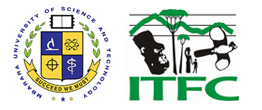Illegal resource access is a pressing biodiversity conservation and protected area management challenge. At Bwindi Impenetrable National Park (Bwindi) in southwestern Uganda, poaching and unauthorised access to forest resources is rife, driven primarily by poverty. An Integrated Conservation and Development Program (ICDP) was established in Bwindi in 1994 to address local community livelihoods, whilst dissuading illegal activity and associated impacts on the protected area.
The Bwindi Mgahinga Trust (BMCT) and Uganda Wildlife Authority (UWA) and other development organisations have been implementing ICDP initiatives that involve funding and implementing community livelihood projects around Bwindi over the past 25 years. These projects are premised on the fact that improving local people livelihoods will reduce local pressure on the park’s resources and therefore illegal activities.
The overall objective of this study was to assess the impact of the various community based livelihood initiatives funded by BMCT and UWA in the mitigation of illegal activities in Bwindi. We combined data collected from questionnaire interviews with illegal activity location data collected as part of the past five gorilla censuses of 1997, 2002, 2006, 2011 and 2018. We analysed the data using a combination of statistical and machine learning ecological niche modelling techniques.
Results show that the funding and implementation of local community projects around Bwindi has a positive impact of reducing illegal activities within Bwindi park. The number of ICDPs funded in parishes around Bwindi was the most important driver of illegal activity patterns and this was most especially in 2018, when there was a dramatic decline of illegal activities with increased funded community projects.
Illegal activities were at highest occurrence in the neck and southeastern parts of Bwindi in the parishes of Buremba, Mpungu, Nyamabare, Kiyebe and Mushanje. These five parishes are illegal activity hotspots of Bwindi. These were the same parishes with the least number of community projects funded by both BMCT and UWA’s revenue-sharing programs.
Similarly, the parishes with the least number of funded community projects were assessed to be the poorest in Bwindi using the UBOS 2018 rankings. Furthermore, illegal activities increased with accessibility (time of travel in minutes from 8) in the nearest human settlement) and with the increase of funded community projects. illegal activities were highest at the park edges and decreased into the park interior.
Fifty-nine per cent (59%) of the interviewed respondents claimed not have benefited at all from any community projects funded by the development organisation working around Bwindi. Of those who had benefited from the funded community projects, UWA’s revenue sharing (RS) projects were the most popular (31%) followed by RTV ( Razing the village) with 21% and the BMCT’s projects ranked third with 14%.
Community projects funded by Twist Uganda and Change a life were considered the least popular by the respondents. Furthermore, results show that overall most respondents who had never or had benefited less from the community projects preferred common good projects over individual household projects and those who had received quite a number of community projects in their parishes preferred individual household projects.
In conclusion, the study notes that the presence of high number of funded community projects has a positive effect of reducing illegal activities in Bwindi. Indeed the parishes with the most funded community intervention projects experienced fewer illegal activities. BMCT, UWA and other development organisations should fund more targeted community projects in those parishes where the poorest households are located.
We also suggest funding of community projects that are for individual households than the common good projects to help improve household incomes and therefore contribute to the mitigation of illegal activities within Bwindi. The funding of these community projects should be focused in the identified illegal activity hotspots, particularly the neck and the southeastern parts of Bwindi Park.
